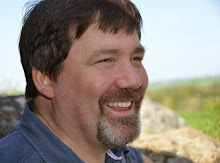In his Inquisition and Liberty, George Coulton reports a disturbing story of the English monk and inquisitor of "heretics" Ralph of Coggeshall (d. 1227). Coggeshall relates the story of an unnamed young woman accused of heresy because she resisted the sexual advances of a priest. The woman was burned as a heretic. Coggeshall tells the story (in Coulton p. 35) in a way that assumes his readers will side with the priest rather than the young woman.
The same source quotes Peter the Precentor speaking of "certain honest matrons, refusing to consent to the lasciviousness of the priests who have by such priests been written into the book of death, and accused as heretics and even condemned."
Such passages shed some light on the phenomenon of the medieval "heretic". In many cases, these women were none other than the victims of clerical immorality and injustice. It is possible that some were third stream believers who rejected not only the advances of the priests but also aspects of the doctrinal framework that underpinned much of this medieval oppression.

No comments:
Post a Comment